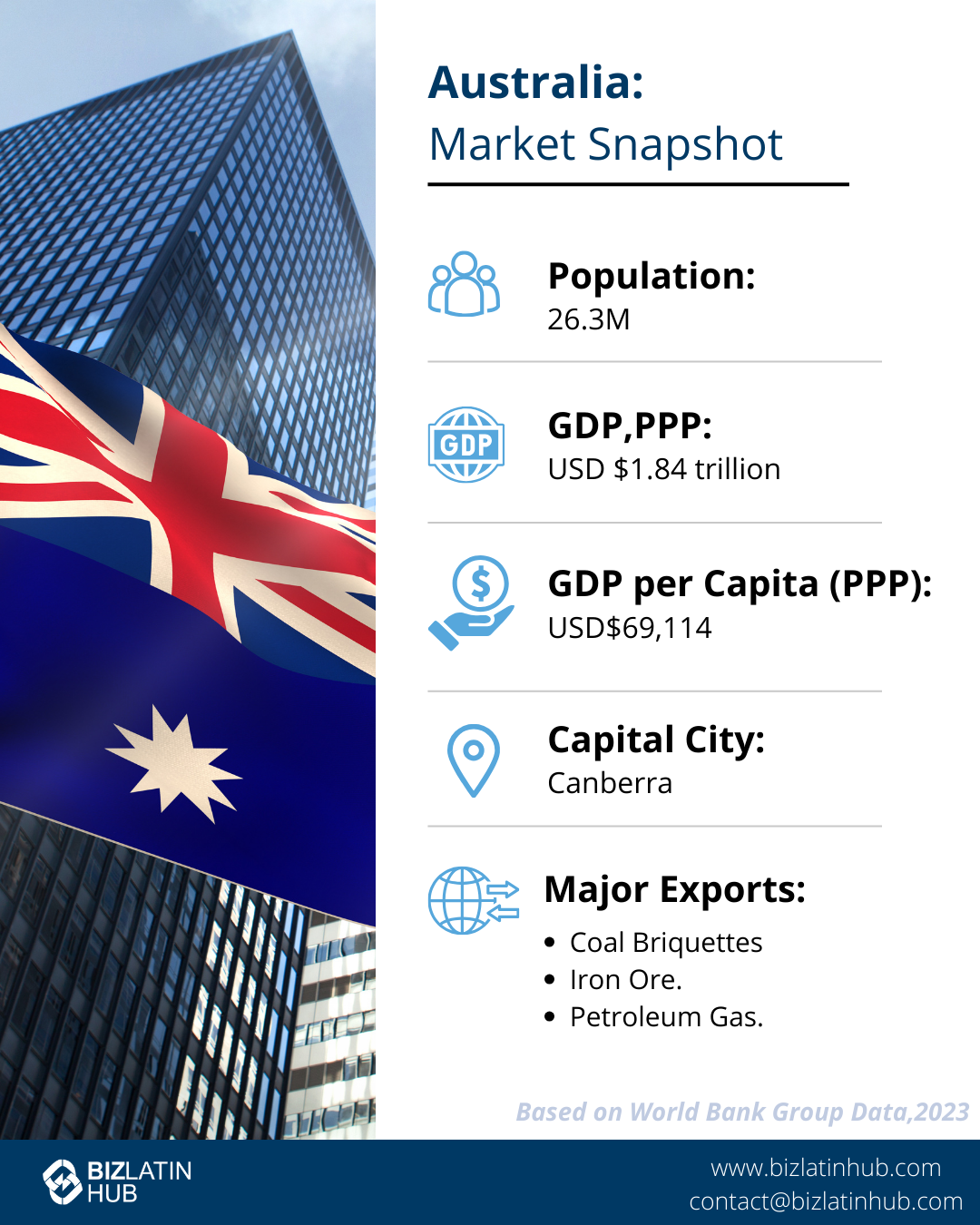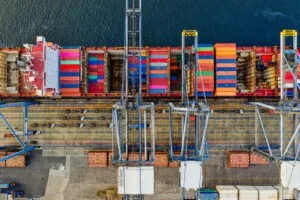Since the implementation of the free trade agreement between Australia and China (ChAFTA), Australia has secured zero tariffs for key products that enter the Asian market. Although Australia and China have experienced tensions, the Asian economy is still a key player in Australian industries. Expanding a business into Australia provides powerful trading opportunities with Asian markets as well as those Down Under.
The Australian economy has been stable and growing for over 3 decades consecutively, with overall exports growing since 2016. China, Japan, South Korea, India, the US, amongst other countries are Australia’s main buyers, but China’s share of the export pie is currently the biggest. That is what makes the free trade agreement between Australia and China so important.
According to the United Nations COMTRADE, China alone accounted for over 30% of the overall Australian exports during 2018, which goes to show the importance of the free trade agreement between Australia and China to improve and ease the entry of Aussie product to the Asian market. Biz Latin Hub can help you get involved in these markets, especially to connect them with Latin America and the Caribbean.

Overview: free trade agreement between Australia and China
The amounts of trade between Australia and China are important for both countries. Thanks to its close proximity to China, Australia has become China’s fifth trading partner. In the case of Australia, this relationship has a greater impact, as China is the first trading partner in Australia. In 2018, exports to China accounted for USD$87.73 billion, which was around 30% of the total exports.
In the midst of important international exchanges, the free trade agreement guarantees zero tariffs for main exports such as iron and coal, and help boost the services sector as China has listed 68 additional Australian private higher education institutions on a key Chinese Ministry of Education website. Incentives such as this, contribute to the increase of the already growing services sector.

The China-Australia Free Trade Agreement entered into force in December 2015 and serves to guarantee zero tariffs to Aussie products up to 2029. As a result of that, Australian producers are able to keep offering competitive prices.
China is the most important market for Australian agriculture; the trade deal eliminated tariffs for wine and wool, and will eliminate tariffs for beef and dairy by 2024 and 2026 respectively. In addition, iron ore, gold, crude petroleum oils, liquefied natural gas, and coking coal have zero tariffs guaranteed as well.
Thanks to the free trade agreement between Australia and China, almost all Australian products have duty-free access. The trade potential increases further from commodities or the services sector alone, there are other sectors that benefit from this trade agreement as well, including telecommunications and financial services. With the appropriate market research, there is a wealth of doing business in China.
Belt and Road: connecting China with Latin America
International trade is a strategic issue for China, as this has contributed to the country’s outstanding economic growth. In fact, China is working on building a global trade network. The Belt and Road Initiative (BRI) seeks to connect more than 70 countries through strategic investment in the infrastructure of rails and road links, energy grids, maritime routes, and more.
Originally this initiative was focused on connecting Eurasia, but since 2017 it expanded to Latin America. China has now developed relations with many Latin American countries, including Colombia, Chile, Panama, Peru, Costa Rica, as the BRI has expanded to the Latin American region.
Panama became the first country to participate in BRI projects, but many countries have joined since, including Uruguay, Ecuador, Venezuela, Chile, Bolivia, Costa Rica, Cuba, and Peru.
Infrastructure projects with Chinese capital in Latin America have started in Ecuador with the reconstruction of the Eloy Aldafro international airport. In Panama, a train line that connects the capital with a western city named David is on the horizon. With new infrastructure, merchandise will reach markets faster through better logistics, decreased time and expenses in the supply chain.
Business opportunities in Australia

There are diverse business opportunities present in the services sector that are appealing to Chinese customers. The tourism sector brings 1.5 million Chinese tourists a year, which creates an opportunity for businesses working in entertainment, restaurants, amongst others.
Education is also an important service that Australia has strategically placed in the Chinese market. In this sense, educational services such as online courses targeted to Chinese aligned to the Australian coursework can represent an opportunity to do business.
The agricultural sector is also big in Australia. Exporting agricultural products with added value can be a great point of diversification for Australia. Products such as fruit candies, jam, meat, salsas and more could enter the Chinese market at competitive prices thanks to the free trade agreement between Australia and China.
Biz Latin Hub can help you make the most of Australia and China’s free trade agreement
Entrepreneurs seeking to enter the Australian and Chinese markets should utilize the free trade agreement between Australia and China. Establish and position your Australian business in order to appeal to Chinese consumers and enjoy higher profits from reduced tariffs.
Businesses expanding to Australia are encouraged to obtain professional assistance so as to avoid any issues registering as an exporter or importer company in Australia.
At Biz Latin Hub, we help entrepreneurs from all over the world do business and conduct international trade in Australia. Our team of senior trade lawyers and accountants can assist you with company incorporation, visa services, international trade and more.
Conduct your business operations in compliance with all regulations. Contact our Australian office here for more information.
Learn more about our team of expert authors.






